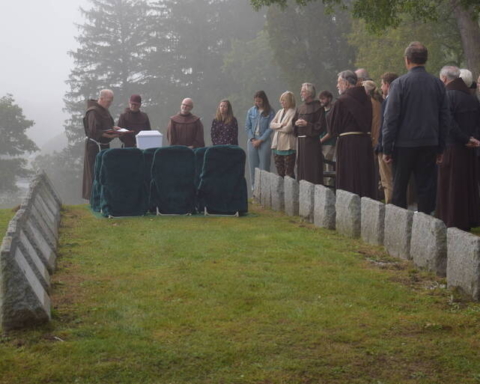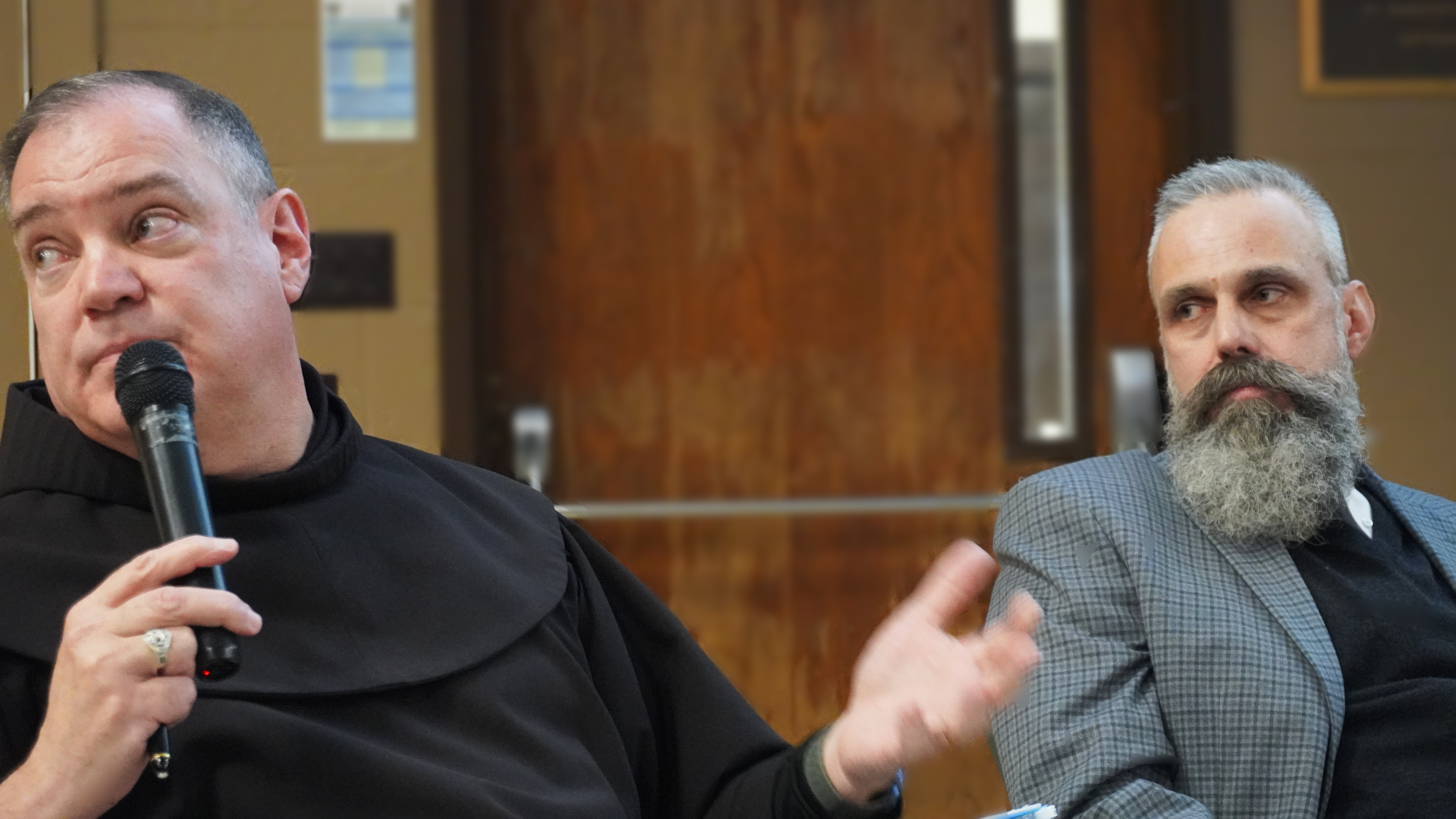By Cameron Pettrone
Staff Writer
St. Bonaventure held a panel in the John J. Murphy Professional Building on Nov. 16 to discuss the results of the election and what may have led to Donald Trump’s victory over Hillary Clinton.
Prior to the results being announced, many people, including most media outlets, believed that Clinton was going to walk away with the presidency.
Although both candidates were divisive, the consensus was that Clinton’s professional demeanor and political background outweighed her flaws and made her more fit for office than Trump, whose bluntness is often criticized.
Benjamin Gross, Ph.D, assistant professor of sociology, opened the panel by presenting his theories for why the polls were wrong for this election.
His first theory was that there was a non-response bias. He suggested that many Trump supporters may have not been accounted for in the polls, perhaps due to their anti-establishment views and refusal to participate or other errors in data gathering.
He also suggested that people, with a confirmation bias were so certain that Clinton would win they did not look at the statistics which showed that the race was closer than they thought.
According to Gross, the “Shy Trumper,” or voters who have secretly supported Trump all along, may have also contributed to his victory.
“Many people who have planned on voting for Trump all along said otherwise…to avoid the uncomfortable feeling of being identified as a Trump voter,” Gross said.
Gross’ final theory as to why Trump surprisingly won the election is that many Trump supporters may have been dismissed as being unlikely voters, which led to an under-prediction of Trump’s chances.
Gross used statistics To further emphasize the extent to which Trump’s campaign defied conventional wisdom.
According to Gross, the number of women and minorities who voted for Trump was vastly understated by the media.
“Forty-two percent of women across the country voted for Trump,” he said.
He also showed that Trump received a good amount of minority voters, even though the predictions stated that it would be a historic low.
J.W. Cook, a senior political science major, addressed millennial voters and their change in party affiliation in this election.
According to his statistics, the percent of minority Republicans in the millennial generation actually increased from the 2012 election.
“African Americans went up one point for Trump…. In terms of Latino support, Trump got one point there as well,” Cook said. “You’re seeing minority support for Hillary in the millennial generation tank.”
These statistics are contrary to the countless media reports and predictions of Clinton winning over all the women and minority votes.
Cook speculated that this is the result of Clinton’s campaign failing to reach out and energize young voters in the way Bernie Sanders did or her failure to move her message into the inner cities and gain those votes that she ultimately needed.
The panelists also argued that, in this election, the messages of the campaigns, the predisposition of the voters and the context in which the election occurred influenced the voters.
Richard Lee, Ph.D., a professor in the school of communication, director of the integrated marketing communications program, concluded the panel by discussing the false perception the media presented and how that may have influenced public perception and opinion on the election.
He believes that this can be credited to the fact that there are almost half as many newsroom employees than there were 20 years ago, and these few reporters have more responsibilities and tasks to juggle than ever before.
“They can’t do the type of in-depth reporting that the public needs to make informed, educated decisions at the polls,” he said.
Lee believes that although statistics are important, reporters must get the public’s view to properly and accurately gauge the consensus of the voters.
Benjamin Reale, a freshman business major, sat in at the panel and has his own perspective on the topics discussed.
Reale said the panel was very biased and leaned noticeably towards the left.
“I would have taken much more away from it if both liberal and conservative viewpoints were addressed equally,” he said. “The bias was palpable.”
He believed that more attention should have been paid to Trump’s positive attributes.
“One of the professors said that Trump ran his campaign with hidden symbols designed to appeal to white nationalists,” Reale said. “Just because a group of hated people agree with him doesn’t automatically make him and all of his supporters bigots.”
Although he is glad that Trump beat Clinton, he does not call himself a “supporter” of Trump.
“I do not agree with everything Trump says, but I would have rather have voted for him than a blatantly corrupt and morally ambiguous person,” he said.
The sheer amount of backlash across the country, including riots and the hashtag “#NotMyPresident,” referring to Trump, shows that Reale’s opinion is not particularly in tune with the vast majority of millennials.
A question was raised at the panel was whether or not the Electoral College should be abolished. Gross responded by saying that while he would like to see it phased out, the process would be too difficult.
The fact that the Electoral College is being examined in this capacity post-election shows how polarizing the results are on this country, and especially millennials.
The panelists explained how the results came about, and left the audience with the assurance that their democratic system is not flawed after all.
pettrocj16@bonaventure.edu






